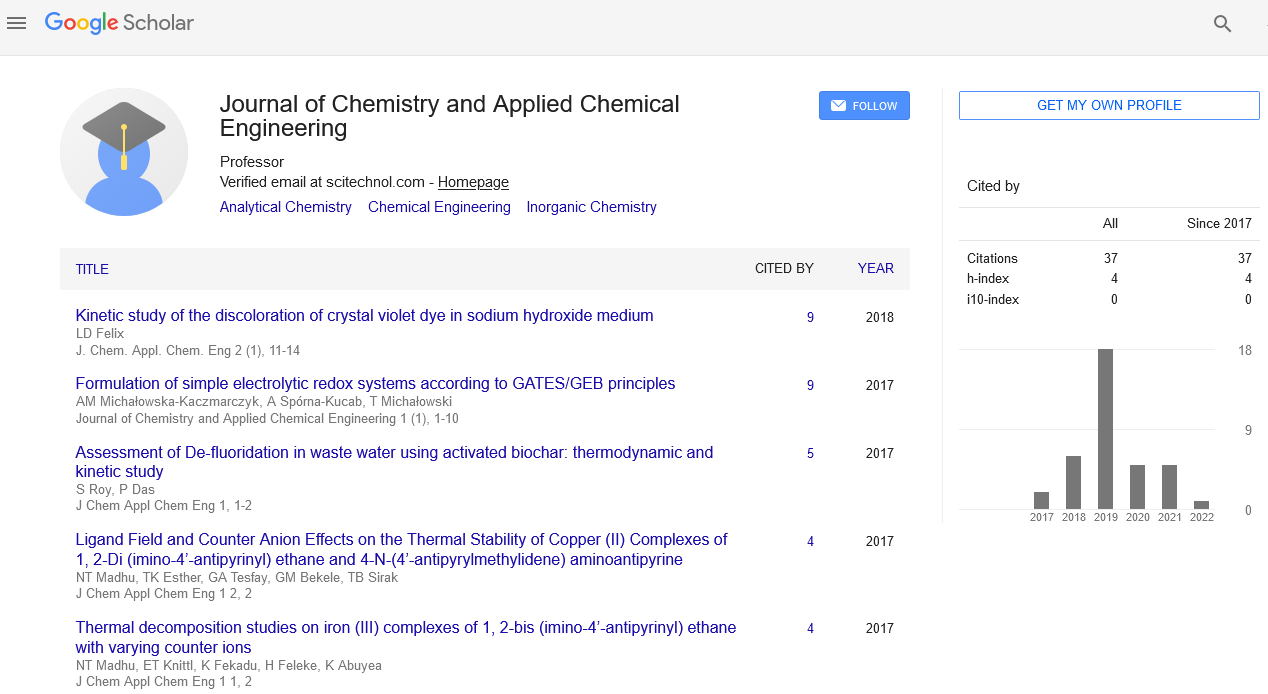Catalytic activity and recyclability of polymer supported palladium and nickel nanoparticles in hydrogenation reactions under sustainable conditions
Maria Michela Dell’Anna, Ambra M Fiore, Giuseppe Romanazzi, Matilda Mali, Cristina Leonelli, Piero Mastrorilli
Politecnico di Bari, Italy
Universita di Modena e Reggio Emilia, Italy
: J Chem Appl Chem Eng
Abstract
The insoluble palladium catalyst (Pd-pol) was obtained by copolymerization of the metal containing monomer Pd(AAEMA)2 [AAEMA− = deprotonated form of 2-(acetoacetoxy)ethyl methacrylate] with ethyl methacrylate (co-monomer) and ethylene glycol dimethacrylate (cross-linker), followed by in situ reduction of Pd(II) to Pd(0), to give polymer stabilized metal nanoparticles (figure 1). In the same way, the insoluble nickel catalyst (Ni-pol) was obtained by copolymerization of Ni(AAEMA)2 with suitable co-monomer and cross-linker, followed by calcination at 300°C under nitrogen or dihydrogen. The good swellability in water exhibited by both Pd-pol and Ni-pol rendered them ideal potential catalysts for reactions carried out in a green solvent, such as water, since the migration of the reagents to the active sites would not be hampered by the solid support. With the aim to develop innovative catalytic processes that enable chemical transformations to be performed under mild and sustainable conditions with high efficiency, we decided to evaluate the catalytic activity of Pd-pol and Ni-pol for several important reductive reactions using water as solvent. Pd-pol and Ni-pol resulted highly active and selective in catalyzing the reduction of quinolines and nitroarenes by H2 or NaBH4, as well as the reductive amination reaction starting from carbonyl compounds. The catalysts were recyclable for several consecutive runs (for example, at least twelve times in the nitroarene reduction). TEM analyses carried out on the catalyst showed that the active species were supported palladium or nickel nanoparticles, which did not aggregate with the recycles. All these results proved that the proposed Pd or Ni based composite materials are excellent hybrid structures as efficient and reusable catalysts.
Biography
E-mail: mariamichela.dellanna@poliba.it
 Spanish
Spanish  Chinese
Chinese  Russian
Russian  German
German  French
French  Japanese
Japanese  Portuguese
Portuguese  Hindi
Hindi 